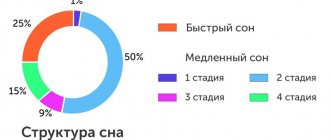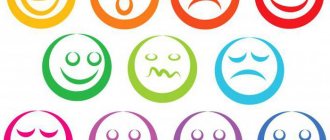- September 9, 2018
- Psychology of communication
- Raisa Bogacheva
Most of humanity tries to tell the truth, but there are people who sometimes lie, and there are those who do it all the time. What do you call people who lie? It is clear that not in very good words.
Sometimes a person lies to protect someone. Even after meeting people, after a few minutes they begin to lie to each other. Every day a person hears from several dozen to several hundred deceitful phrases and sees several thousand deceitful movements. Everyone is very interested in the question of why people lie. Psychology gives the following answers.
Why do people lie
If a person constantly lies, the psychologist’s answer is the following: he creates an image for himself. That is, they talk about some adventures or exploits in order to appear in the eyes of the listener in a better and brighter light. They make up stories or exaggerate their abilities to make people think how wonderful they are. There are people who lie just like that, without any reason, simply because they like it. Some people may lie to unsettle their interlocutor. Other people lie to protect relationships or feelings.
For example, if a spouse cheated, he will lie to save the family and relationship. Or he will praise his wife for her new blouse, even if he doesn’t like it, just so as not to upset his beloved. Sometimes a person lies to protect another person from some consequences.
For example, if a child faces legal liability, then the parents will protect him, even if he is guilty, so that the life of their child is not ruined. Sometimes such a lie is justified, because it helps to avoid an unnecessarily severe punishment. There are people who lie for the sake of their own reputation and in order to impress.
For example, they lie about their financial situation in order to arouse interest in their personality, or exaggerate their work opportunities in order to get a good job. They resort to this form of lying in order to get career growth, a higher salary, for some kind of self-interest. Some liars lie to avoid some kind of conflict situation. For example, children may tell lies to avoid punishment or fear disapproval.
Psychology of lies
A lie is only an insufficiency of truth.
Lev Platonovich Karsavin
Lies are such a frequent occurrence in our lives that it is easier to identify those cases when people, both intentionally and accidentally, so to speak, by inertia, do not lie to each other, than when they do lie.
At the same time, most people have formed a negative attitude towards lies, as well as towards everything else, which gives one person an advantage over another. But lies were, are and most likely will always be an integral part of our lives, no matter how we treat them, because they are part of our nature. And today, in times of universal informatization, there is especially a lot of it, because in the civilized world lies and deception are an alternative to violence, which used to be much more common, and which largely determined relations between people. Today, people prefer to use each other mainly through lies and deception. Therefore, every person who wants to understand life and people must know everything about lies. The psychology of lies will teach you to recognize the lies of other people and use them correctly yourself. In this article I will try to reveal this topic for you as completely and accurately as possible. We live in a world of lies, in which there are evil and harmful lies, and there are good and good ones, useful for many people. You need to be able to navigate all these lies. You cannot reject lies or use them everywhere, and even in the same form - this can lead to big problems. You need to be able to handle lies competently, and the psychology of lies, which reveals and studies this topic, helps to do this. The main thing is not to evaluate the lie, but to understand it. I hope that most of you will approach this article with an open mind, so as not to evaluate it from the point of view of your existing beliefs, rejecting one and accepting another, but to supplement your existing knowledge with new knowledge and draw deeper conclusions based on them. So, first, let's quickly find out what a lie is.
What is a lie
It is believed that a lie is a deliberate distortion of the so-called truth, or, more simply put, a lie. But if you think about it, such a concept as truth is too difficult to understand and define to be able to talk about its distortion. Firstly, not everyone knows the truth, and secondly, everyone sees it in their own way, and everyone has their own truth. Therefore, often people do not intentionally distort the truth so much as they see it as they want to see it and understand it as they are able to understand it, and reflect it accordingly in their words and actions. That is, people lie - they distort information, sometimes without even realizing it.
Also, in contrast to the same deception, a lie can be for the good, when, for example, one person does not want to offend another person, so he tells him not what he sees, but what he wants to hear. Deception is always used for self-interest, but a lie can be for salvation, for good. Therefore, from my point of view, lying is not only a necessary method of communication in our lives and an effective means of influencing people, but also an inevitable and completely natural form of communication. To put it even more simply, lying is a tool available to everyone, but not everyone knows how to use it competently. But nevertheless, we all need a lie, because we still don’t know how to live without it. So the ability to lie is a vital skill. Below I will tell you why.
Why do people lie
People lie, firstly, all the time, secondly, they do it for profit, out of fear and spontaneously, unintentionally, and thirdly, people often lie extremely ineptly and thoughtlessly. With benefit, I think everything is clear - if you skillfully mislead other people, then you can get from them some actions you need, some concessions, some decisions that are beneficial to you. We can see such lies everywhere - we are lied to using TV, newspapers, the Internet, and other sources of information. In particular, advertising constantly does this, deliberately misleading us with its incomplete or completely unreliable information in order to get certain decisions and actions from us. Politicians also constantly lie to us for personal gain, and they lie much more often than they tell the truth. It’s not for nothing that Plato wrote that a politician and a liar are synonymous. Well, we ourselves often lie when communicating with each other, both in small things and in big things, in order to use lies to gain some benefit or to protect ourselves from something. If you think that this does not apply to you, that you are an absolutely honest person who never or almost never lies to anyone, then you can either not take my words personally, or better analyze your behavior and your words recently, to try to detect lies in them. Usually, when people begin to carefully examine their behavior and their words, they discover, sometimes with surprise, that they are not as honest as they always thought. But you shouldn’t be ashamed of this, since lying is a natural and necessary part of our life, we cannot and should not live without lies, because in this world it is impossible to do this, at least for now.
As for lies caused by fear, such lies are a defensive reaction of the body, this is a defensive reaction of our mind, which is designed to protect us from some threat through distortion of information. Children, for example, often lie for the sake of protection from adults, since they are physically weaker and lying is their only salvation, sometimes from the same violence. And since many people constantly encounter violence expressed in one form or another in their lives, it is very difficult, if not completely impossible, to protect themselves from it without lying. Let's say, in the same court, sometimes it is simply impossible to be honest, even if it is beneficial to you, since the truth, no matter how truthful it may be, may not be of interest to the court, the judge, the jury at all, so you have to play cat and mouse with justice, with the help of good lawyers so as not to become its victim. We cannot afford such a luxury as the truth, we cannot always be crystal honest with everyone, because people will not only begin to use our honesty against us, starting to take advantage of us, but will also not forgive us for some truth. In addition, some forms of truth are, let’s say, a very valuable resource that needs to be protected, if not from everyone, then certainly from some people. And for this you have to lie to people. After all, let's say, if you honestly tell other people about your weaknesses or your problems, then many of them can use this information against you. For example, you cannot tell everyone about some of your family problems, because people can take advantage of your problems to their advantage and to your detriment. For example, a woman in need of a man can steal her friend’s husband if she finds out about her family problems and uses them in the right way for her own benefit. Therefore, you don’t need to tell anyone about some of your problems except specialists who know how to solve them, and you can and should lie to overly curious people who are interested in other people’s lives in order to prevent them from learning more about you than necessary. And people themselves sometimes do not want to be told the truth, for example, about themselves. Fear of the truth, no matter how you approach it, is often quite justified. Therefore, when people see that they are in danger, they lie as best they can. And other people, on the contrary, reject the truth and demand lies.
Well, as for the lies that break out of us accidentally, unintentionally, automatically, this is perhaps the most common form of lies in our lives. You see, friends, we often tell each other not about what actually is, but about what we want it to be. We often lie not for profit or out of fear, but to maintain the reality, both in our own heads and in the heads of other people, that we want to see in our lives. For example, a person can be asked how he is doing, and he will answer that it is normal, good, excellent, when in reality this is not the case. In fact, he may have serious problems in life. But the point is not that he does not want to share his problems with you because of fear and distrust, but that he does not want to think about them, does not want to notice them, does not want to discuss them - he avoids them. A person often lies not so much to others as to himself. We need lies so much, we need illusions so much, that we often lie to ourselves if other people do not.
At the same time, I would not say that from this point of view, the psychology of lying is the psychology of a weak person running from reality. Indeed, often our lies turn into truth when, avoiding negative reality, we create for ourselves another reality that is more suitable for us, for example, running away from our problems or thinking about ourselves better than we really are. And ultimately, we can really come to a new, more acceptable reality for us. Truth, let's say, is a very complicated thing, it can be true up to a certain point, until we learn more or do something that destroys one truth and creates another, new one. For example, if a person failed by making a series of serious mistakes, then he can well be called a failure and this statement will be true. But if this same person works on his mistakes and draws the right conclusions from his failure, using it as a lesson, and not as an excuse for his inability to achieve something, then this failure will become for him the road to success, and then call This man's tongue won't lift his tongue as a loser. Consequently, the truth will undergo changes and a person will turn from a loser into a winner - this will be a new truth. But again, it will not be final, because in the future it may turn out that the success achieved by a person in one business or another will be the consequence of a serious failure in another matter, which means that it will not be entirely correct to consider this person a winner. And so on - as events develop, our attitude towards them can change, our perception of them can change, and therefore our understanding of the truth can change. Therefore, by taking time slices from our lives and studying them, we can ascertain truths that have different meanings, which, at one glance, will be true for us, and at another, a lie.
All this tells us that we can consider even the same information to be both true and false, depending on our interpretation of it and the conclusions we draw from it. We can see in a person a thief if he took someone else's property, or we can see in him a noble knight, a kind of Robin Hood, if he took property from someone who himself appropriated it to himself in a dishonest way, taking this property from other people. The phenomenon seems to be the same, but the truth or the truth, as you like, is different. So then say that there is always one truth, just like the truth. Truth and truth, friends, are products of our thoughts, so the truth of one person does not always coincide with the truth of another person.
How to recognize a lie
To recognize any lie, you need to be a skilled liar yourself, understanding how far people can go by consciously or unconsciously distorting information. And for this, you need to know a lot and understand a lot. After all, in order to be guaranteed to recognize a lie, you need to know the truth, this, you see, is logical. For example, if a doctor tells you that such and such a medicine will help you get rid of your health problems, then how do you know whether he is telling you the truth or not? Even if you notice his nervousness and a lot of other signs indicating that the person is lying, even if his words are not entirely logical, this does not mean that the doctor is deceiving you, because it is quite possible that he is telling you the truth, but not all. Perhaps there is a cheaper, but no less effective analogue of the medicine he prescribes, and at the same time this analogue is much more reliable because it has been tested by time, but due to financial interests the doctor does not tell you about it. It turns out that he is telling you the truth and lying at the same time, or, to put it more correctly, he is not telling you the whole truth. Therefore, he may not be logical, may be nervous, sweat, in general, act like a real liar, but at the same time tell you half-truths, which you cannot interpret as a lie without knowing the whole truth. But if you know that there is another medicine that is more suitable for you, both in price and in quality, and you also understand that the doctor can prescribe you those medicines for which the manufacturers of these medicines pay him extra, then you You will accurately recognize his lie, or rather, that part of the information he provides that can be called a lie. Therefore, knowledge and logic are your weapons against lies.
It is also worth saying that there are so many lies in our lives, so much information that does not correspond to reality, that it is simply pointless to talk about it, about lies, as something bad. Sometimes it is more difficult to recognize the truth than a lie, since in our time there are a lot of lies and little truth everywhere. This becomes clear upon careful analysis of almost any information intended for a wide audience. It is believed that a lie must be hidden among the truth so that it is perceived by people, that is, you need to make a kind of sandwich, where the thick top layer is the truth, the lower thin layer is also the truth, and a thin piece of lies is hidden in the middle. But I think this is an outdated approach to planting lies in people's minds. Nowadays, the truth is already that thin piece that is sandwiched between two thick pieces of lies, which are more effective the more difficult it is to verify. Nowadays, people are too busy with work and information to check this information for accuracy. Today, even the most incredible lies are being told, which people believe as readily as they did thousands of years ago, being completely illiterate. Only today the problem of people who are fed lies is not illiteracy, but the lack of time to check all the information coming to them, or even just think about it in order to recognize an obvious lie in it.
Therefore, the art of deception is improving and the same politicians no longer hesitate to invent outright tales consisting of ninety percent or more lies in order to influence people in the necessary way. And if we talk about advertising, I personally find it very difficult to find advertising that does not lie to people at all. So there are many, many lies in our lives, but the truth is becoming less and less. Even in science, where serving the truth is one of the main requirements for a scientist who is obliged to observe scientific ethics and is obliged to protect lies, more and more both conscious and unconscious lies are appearing, which, worst of all, remain unpunished. Today you and I live in an ocean of lies, in which there are islands of truth, islands of truth, and they are our salvation.
How to lie correctly
To lie correctly, you need to lie beautifully and smoothly. There is an opinion, and I absolutely agree with it, that most people themselves want to be deceived. Many people don’t need the truth. Or rather, they need their own truth, they are interested in the truth that is convenient for them. Therefore, in order to successfully lie to such people, you just need to tell them what they want to hear from you, and in the context of this, convey to them some of your thoughts that you want people to believe. Beauty and logic are very important here, as they allow people, both through the emotional and through the conscious sphere, to qualitatively assimilate information. The main thing is that people want to believe what they like to see and hear, which means they are ready to perceive lies. People believe that someone else, but not themselves, can make their life the way they want it to be. People believed in this, believe and will continue to believe, since most of them are not so independent as to take care of themselves. A people is a child who wants to be taken care of. Such a child lives in each of us, so people want to believe what they like and willingly accept lies that correspond to their dreams and desires.
To accomplish the above task, that is, to create a beautiful and coherent lie, you need to learn how to come up with beautiful and believable fairy tales that not only other people, but also you yourself will be ready to believe. If you want to deceive others, deceive yourself first, and when you yourself believe in your fairy tale, most other people will believe in it too. But remember, for people to believe in your fairy tale, it should be a fairy tale not so much about you as about them. You can also lie about yourself, sometimes this allows you to achieve a lot in life, because people are more willing to communicate and cooperate with those who, in their opinion, are an outstanding and very interesting person. But still, it is much more pleasant for people to believe in what is directly related to themselves, to their lives, to their dreams, desires, problems, and what can make their life better. Therefore, come up with fairy tales that will paint in people’s heads an image of a beautiful future in which they would like to find themselves, according to their desires and dreams. Such a lie is like a balm for the soul for some people.
Well, to create a beautiful and pleasant lie in the form of a fairy tale, as well as to recognize it, you need knowledge, as well as well-developed thinking, the ability to speak beautifully and/or write beautifully, the ability to talk about something beautifully and interestingly, and always comprehensibly tell that there is logic in the lies presented, that everything in it is clearly connected with each other, and that all the lies are bright and colorful, in a way that even the best truth cannot be. Therefore, well-educated people know how to lie very well, and less educated people are not able to recognize this lie, since they are simply not able to imagine themselves in the place of a liar in order to understand how large-scale, deep and in some cases cynical a lie can be. Moreover, the less educated a person is, the more he needs what is called a complete lie, when everything is chewed over and explained to him in detail, and he does not need to think about anything, he just needs to believe the liar. It is more expedient to push smarter people to the right thoughts, rather than instill them in them. It is easier to deceive such people with information that requires them to think about it, rack their brains in order to find some answers themselves and come to certain conclusions. But in any case, having more extensive knowledge, it is much easier to protect yourself from lies and use it yourself to solve your problems and tasks. Smart, educated people make lies that are coherent, systematic, beautiful, logical, understandable, and effective. So the more a person knows and the better he thinks, the better he lies.
Attitude towards lies
In our society, I believe, a too generalized and therefore unjustifiably negative attitude towards lies has formed. In general, most people consider lying to be evil. We are taught this from childhood, instilling in us that it is not good to lie, that we must always tell the truth. However, not all lies are evil, and even more so, it is not necessary to always tell the truth, since it will make you vulnerable in front of other people. But even those lies that harm people are relative evils, aimed in some situations at fighting even greater evils.
Indeed, in our world, even in the civilized part of it, despite culture, laws, rules, law, what is most often recognized is not the power of law, but the right of power, when the strong are always right in everything, and it is the strong who decides what is right and what is wrong. No. And in order to resist force, which can manifest itself in different forms, including in the form of violence, it is also necessary to have some kind of force that cannot be ignored. What might this power be? This can be the power of intelligence, which is expressed in many forms, including in the form of lies, which can confuse and confuse anyone. A person can lie and this lie will be evil, but at the same time it will protect him from even greater evil in the form of the same violence. Sometimes people have to respond asymmetrically to the threats to which they are exposed, and lying helps them do this. You cannot demand from people that they always answer to everyone for their words and be crystal honest, because this will increase inequality between people. Try it - catch the same politicians in lies, or lawyers, or owners of large information resources, or rather, not so much even catch them in it, but make them answer for their lies, make them bear responsibility for it. Yes, they will simply crush you with administrative resources - they will make you guilty of everything and punish you for trying to deprive them of their instrument of influence on people. So what do you have left in this case? Well, certainly don’t rely on injustice, because as I already said, the right of the mighty is what is fair in this world. And if you are weak, become stronger, and do not look for justice where there is none. Therefore, a lie is a weapon against those who, by force and with the same lie, try, and often successfully, to subjugate the will of other people. Therefore, there is no need to condemn it - you need to learn to use it.
Finally, I want to tell you, dear readers, that the psychology of lies, like the psychology of deception, should be studied by you without any prejudices regarding such phenomena as deception and lies. Routine thinking harms any development, and it also harms our understanding of the role of lies in our lives. Remember that if you have been told since childhood that lying is bad, this does not mean that it really is so. Everything is relative in this world. Sometimes lying to some people in some situations about some issues is actually a very bad thing. And if you do this, then such a lie is unlikely to lead you to anything good. Still, whatever you say, evil often returns to the one who gave birth to it, this is the law of nature. But sometimes it’s simply impossible to do without lies, without deception; it’s impossible to live without them, let alone survive. Therefore, in certain situations, lying is simply necessary, and a person has every right to use it, both for defense and for attack.
At the same time, you need to understand that you need to be able to lie, lies must be carried out through the filters of morality and reason, so as not to be a banal, obvious, stupid liar, who with his lies only turns people against himself, and does not derive any significant benefit from it. The process of learning this skill is not quick or easy. But if you have a good teacher who teaches you to come up with beautiful and believable tales for each individual person or for society as a whole, then you will quickly become an excellent liar, and your lies will be useful not only for you, but also, strangely enough, will sound for other people too.
Influence on others
Some liars lie to somehow influence others. They think that deception sounds more reliable than the truth, and thanks to this they control the situation.
When a person begins to lie systematically, he can no longer stop; lies give rise to new lies. And the more he lies, the harder it is for him to tell the truth. Pathological liars think that if they admit that they once distorted the facts, then they will be exposed and the whole truth will be known. Fearing this, they continue to lie even where it is not necessary. In stressful situations, a person does not think about little things and to save himself, he begins to lie and believes it himself. It is more profitable for him to lie and believe than to tell the truth.
Sometimes people who lie a lot engage in wishful thinking. It seems to them that dreams can become reality if they just exaggerate a little and throw dust in the eyes of others. Whatever the reason for the deception, the person feels awkward at this moment. And the reaction of the interlocutor is very important, who may say “I don’t believe it” or “stop making up things.” The liar will then lie even more to protect his reputation and show that he is telling the truth.
Gestures say more than words
Do you want to know the truth, no matter how bitter it may be? You will have to memorize the basics of body language and body language. If during a conversation the narrator constantly, as if “by chance,” touches his face, tries to scratch himself, covers his mouth with his hand, as if joking, or simply touches his lips and chin, most likely he has something to hide. Signs that should also alert you are unnecessary touching of the neck, collar of clothing or jewelry. If a woman fiddles with her earrings and a man rubs his earlobe, these are also “symptoms” of lying.
But it turns out that if you remember all these gestures and consciously avoid them while lying, you can remain undetected? Theoretically, yes, but in practice, even experienced scammers, wanting to lie, completely concentrate on the conversation. They carefully select their words, make sure not to say too much, and try to maintain an even and calm timbre of their voice. The psychology of lying is such that when lying consciously, it is difficult to control both your own voice/speech and body at the same time.
Low self-esteem
The reason for lying can also be low self-esteem or some difficult life situations that a person has experienced. It could be criticism or unrequited feelings. Other people have a hard time accepting a situation and it’s easier for them to come up with something and lie so as not to fall on their face. Instead of thinking about his problems, a person comes up with some new and interesting facts about his own life. As a rule, people become liars from adolescence, when the teenager may have experienced some kind of social conflicts or was humiliated. And in order not to experience this again, they lie, thus protecting themselves. Lying is not a habit, it is a natural human trait.
Blatant or shameless lies
But this type of lie can no longer be called harmless. Blatant lies are the most serious and vile type of lies that exist.
It can include slander, in order to avoid punishment, or for the sake of worsening relations between other people, making false promises for the sake of obtaining one’s own benefit, in general, any lie aimed at harming another person, or one’s own benefit at the expense of others.
When people shamelessly lie, they deal a crushing blow to their karma, and the Universe will not leave them unpunished. I am glad that only a visibly rotten person can consciously decide to commit such a lie, and such people, as one would like to believe, are still in the minority.
How does this happen in children?
Not only adults, but also children cheat. What is the reason for this? It happens that children's lies do not harm, but benefit, but it also happens the other way around.
Let's figure out when and for what reasons children lie:
- Up to 3 years. At this age, children do not know how to lie at all; it is not physiologically given to them. The child’s brain is not yet capable of inventing; it pays its attention only to what is around it in reality.
- From 3 to 4-4.5 years. At this age, the child fantasizes, comes up with some images, he composes some fables, which in principle cannot exist. At this age, lying helps the child develop and learn.
- 4.5-5 and older. The child lies about everyday and domestic issues. For example, he lied that he had done his homework, but he didn’t even know what the homework was, he skipped class, and said that the teacher canceled it and didn’t come.
Creative lies
It is also a relatively harmless type of lie, since it rarely harms anyone and does not carry malicious intent. It is used to attract attention and emotional coloring of a story. A person can tell how he witnessed some interesting and exciting incident, although in reality such a thing did not happen.
As mentioned above, there will be no great harm from such a lie, but you shouldn’t get carried away with it either, because it can become a habit, and sooner or later those around you will find out that you are systematically deceiving them, and you will be branded a windbag.
Types of Liars
There are 7 types of people who lie all the time:
- Psychopaths. These are people who lie for their own benefit, even if they find themselves in a situation where they need to help someone, they will easily lie for their own benefit.
- Extroverts. These are people for whom lying is as easy as breathing, and they themselves believe what they say.
- Narcissistic people. These are people who lie in order to get attention.
- Sociopaths. These are individuals who live and breathe lies.
- Pathological liars. These are people who lie constantly but never admit it.
- The youth. Teenagers can cheat an indefinite number of times; this is a natural stage of socialization. It is difficult for teenagers to fit into society without using lies.
- Salespeople are people who lie all the time in order to earn as much as possible.
The older a person gets, the less he lies. It is difficult to say what causes this, but this fact exists.
Principles for constructing a revealing conversation
- Open-ended questions: Avoid questions that require a one-word answer. Instead, try to get a long story. The questions will force the liar to come up with colorful details, but in the end, he himself will get confused in his inventions.
- The effect of surprise. Give the liar a brainstorm. Shoot illogical and atypical questions. Make them tell the “true” story in the opposite order. Research shows that lying in reverse order is quite difficult.
- Attention to detail. Check out the little details. For example, a fictionalist talks about his work in a prestigious company. Ask about the people working there. About the road to work. There will probably be contradictions in the story, then you shouldn’t immediately give away your guesses. Better to play along. Confidence inspires and makes a person less vigilant. Mistakes will not keep you waiting.
- Watch the reaction . Especially on uncomfortable questions. It's easy to be confident by telling facts. Or what I came up with in advance. But unexpected questions can take you out of your comfort zone.
The conversation style should be casual. The dreamer should not suspect that his words are being questioned. Then he will relax and reveal himself in small things.
How to determine that a person is lying?
It's easy to find out. There are 3 ways to understand this.
- The first way is facial expressions. One of the signs of lying is shifting eyes or staring too closely. Also, when a person is deceiving, he looks either to the left or up.
- The second way is gestures. When a person lies, he clasps his hands or hides them in his pockets, also moves a couple of steps away from the interlocutor, may clutch his cell phone or hold his bag tightly.
- The third way is conversation. When deceiving, a liar's voice begins to tremble and he begins to speak more slowly, indistinctly, in order to come up with a lie during the conversation.
Manifestations of a pathological tendency to deceive
The obsessive urge to write doesn’t just appear. Its origins must be sought in the past, in childhood grievances or shocks. Sometimes a constant desire to lie is characteristic of people who have mental and personal difficulties.
Symptoms of pathological lying are characteristic and pronounced. To identify them, you need to listen well to a person’s speech and analyze the details. A person prone to deception may retell one story many times. However, in his narratives the writer contradicts himself. There are constant inconsistencies in the details of the stories. A liar simply does not notice them. Pathological liars tend to tell lies about such significant things as illness or the death of relatives and friends. Such a feature becomes an unpleasant trait for others, who at first take the words of the writer as truth. Of course, they sometimes have to experience anxiety. Anyone who is prone to abnormal lies believes that he is not doing anything wrong. If he is convicted of a crime, the person tries to justify himself (the documents were lost, and friends who saw everything with their own eyes cannot get in touch).
Statistics
We all dream of being smarter, better, stronger and richer, and any lie is some kind of attempt to build a bridge between real life and fantasies about who we would like to be.
During the day you can be lied to from twenty to a hundred times. Strangers can lie to each other twice during the first fifteen minutes of communication. Introverts lie less often than extroverts; men lie nine times more often than the female population.
In families, spouses lie twice as often as in everyday life, for example, with colleagues.
Involuntarily touches any part of the body
0
For example, a liar usually touches his throat, chest, or stomach. “I have often witnessed this type of behavior in the courtroom when I acted as a consultant. When I see a defendant involuntarily touching his throat, for example, it most often means that the testimony of one of the witnesses is making the defendant nervous.”











